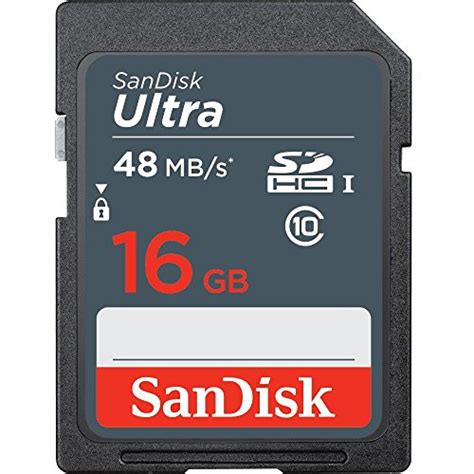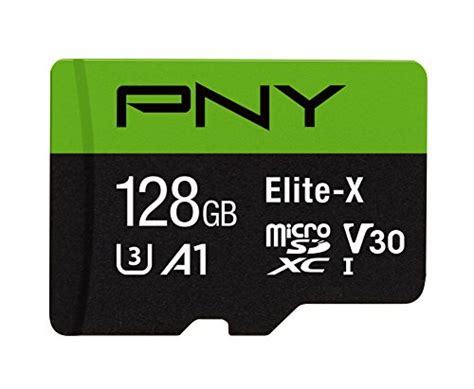
This course offers students an engaging, interactive introduction to the essential topics in psychology. Learn about Open & Free OLI courses by visiting the “Open & Free features” tab below.
As the name suggests, Introduction to Psychology offers students an engaging introduction to the essential topics in psychology. Throughout this study of human behavior and the mind, you will gain insight into the history of the field of psychology, as well as explore current theories and issues in areas such as cognition, motivation, and wellness. The course has been updated to align with DSM-5.
The importance of scientific methods and principles of research design is emphasized throughout this course and presented in a way that will enrich your study of individuals as thinking, feeling, and social beings.
This course is part of our Community College (CC-OLI) series. Although courses in this series are particularly well-suited to the needs of introductory community college courses, the course materials have been used successfully by learners and educators at a broad array of institutions.
It consists of 16 units, each with an average of four modules. The content of each module is driven by a set of student-centered learning objectives.
Along with expository text, videos, animations, interactive exercises, and self-assessments form the framework for students to actively discover, acquire, and personally relate to the concepts and ideas offered in this course. For example, students will actively encounter material through “Learn By Doing” activities that facilitate and support learning with hints and immediate, targeted feedback. Coupled with these activities are “Did I Get This?” self-assessments that give students the opportunity to gauge their understanding of the material. The Open & Free version of Introduction to Psychology does not include the scored assessments at the end of each module, nor are the instructor tools available.
Unit 2: Introduction
Unit 3: Methods
Unit 4: Brains, Bodies, and Behavior
Unit 5: Sensing & Perceiving
Unit 6: Learning
Unit 7: Memory
Unit 8: Language
Unit 9: Intelligence
Unit 10: Lifespan Development
Unit 11: Emotion and Motivation
Unit 12: Personality
Unit 13: Psychology in Our Social Lives
Unit 14: Wellness
Unit 15: Disorders
Unit 16: Treatment
Unit 17: Consciousness
UNIT 1: Learning Strategies
UNIT 2: Introduction
Module 1: Welcome to Psychology
Module 2: History and Perspectives
UNIT 3: Methods
Module 3: Scientific Method
Module 4: Research Designs
UNIT 4: Brains, Bodies, and Behavior
Module 5: Neurons: The Building Block of the Nervous System
Module 6: Brain Regions
Module 7: Methods for Studying the Brain
Module 8: The Nervous System and the Endocrine System
UNIT 5: Sensing & Perceiving
Module 9: Introduction to Sensing & Perceiving
Module 10: Seeing: The Visual System
Module 11: Audition & Other Senses
Module 12: Perception: Interpreting Sensation Based On Knowledge
UNIT 6: Learning
Module 13: Classical Conditioning
Module 14: Operant Conditioning
Module 15: Learning By Insight and Observation
UNIT 7: Memory
Module 16: Types and Stages of Memory
Module 17: How We Remember: Cues to Improving Memory
Module 18: The Biology of Memory
Module 19: Accuracy and Inaccuracy in Memory and Cognition
UNIT 8: Language
Module 20: Communicating With Others: The Development and Use of Language
UNIT 9: Intelligence
Module 21: Defining and Measuring Intelligence
Module 22: Bell Curve
Module 23: Sternberg & Gardner
Module 24: Issues and Controversies Related to Intelligence
UNIT 10: Lifespan Development
Module 25: Introduction to Lifespan Development
Module 26: Prenatal and Early Development
Module 27: Cognitive Development In Childhood
Module 28: Social & Personality Development in Children
Module 29: Development During Adolescence
Module 30: Adulthood: Early, Middle, and Late
UNIT 11: Emotion and Motivation
Module 31: Experience of Emotion
Module 32: Positive Emotions
Module 33: Human Motivation
UNIT 12: Personality
Module 34: Personality and Behavior: Approaches and Measurement
Module 35: The Origins of Personality
Module 36: Is Personality More Nature or More Nurture? Behavioral and Molecular Genetics
UNIT 13: Psychology in Our Social Lives
Module 37: Social Cognition: Making Sense of Ourselves and Others
Module 38: Interacting With Others: Helping, Hurting, and Conforming
Module 39: Working With Others: The Costs and Benefits of Social Groups
UNIT 14: Wellness
Module 40: Having Balance in Your Life
Module 41: Maintaining Balance and Optimal Wellness in Your Life
Module 42: Being Out of Balance
Module 43: Stress
Module 44: Pain Management
Module 45: Mindfulness
UNIT 15: Disorders
Module 46: Defining Psychological Disorders
Module 47: Anxiety, Obsessive-Compulsive, and Posttraumatic Stress Disorders
Module 48: Mood Disorders
Module 49: Schizophrenia
Module 50: Personality Disorders
Module 51: ADHD and Autism Spectrum Disorder
Module 52: Dissociative Disorders
UNIT 16: Treatment
Module 53: Psychotherapy
Module 54: Biomedical
Module 55: Social
Module 56: Prevention
UNIT 17: Consciousness
Module 57: Introduction to Consciousness
Module 58: Sleeping and Dreaming Revitalize Us for Action
Module 59: Altering Consciousness With Psychoactive Drugs
UNIT 18: Acknowledgments
This course is designed to be equivalent to one semester of college level Introductory Psychology. To finish the entire course, it will take approximately 14 weeks, assuming you do about one unit per week.
August, 2017
This Introduction to Psychology course was developed as part of the Community College Open Learning Initiative. Using an open textbook from Flatworld Knowledge as a foundation, Carnegie Mellon University’s Open Learning Initiative has built an online learning environment designed to enact instruction for psychology students.
This work is licensed under a Creative Commons Attribution-NonCommercial-ShareAlike 4.0 International License.
OLI system requirements, regardless of course:
Some courses include exercises with exceptions to these requirements, such as technology that cannot be used on mobile devices.
This course’s system requirements:
This work is licensed under a Creative Commons Attribution-NonCommercial-ShareAlike 4.0 International License.
OLI’s website has undergone a refresh, and so has the student registration process. Watch the video to see how easily students can register with a Course Key.
 Smead 100 Recycled Pressboard Classification File Folder 1 Divider 2quot Expan
Smead 100 Recycled Pressboard Classification File Folder 1 Divider 2quot Expan
 Classic Accessories Veranda Water Resistant 11 Foot Patio Umbrella Cover
Classic Accessories Veranda Water Resistant 11 Foot Patio Umbrella Cover
 Sandisk 16 Gb Class 10 Sd Hc Ultra Flash Memory Card 10 Pack Bundle With
Sandisk 16 Gb Class 10 Sd Hc Ultra Flash Memory Card 10 Pack Bundle With
 Fairwin Braided Leather Dog Training Leash 6 Foot 56 Foot Military Grade H
Fairwin Braided Leather Dog Training Leash 6 Foot 56 Foot Military Grade H
 3m Reflective Dog Leash 5ft Long With Traffic Padded Handle Dog Training Leas
3m Reflective Dog Leash 5ft Long With Traffic Padded Handle Dog Training Leas
 How To Be Your Dogs Best Friend The Classic Training Manual For Dog Owners
How To Be Your Dogs Best Friend The Classic Training Manual For Dog Owners
 Classical Naptime For Tots
Classical Naptime For Tots
 Doggie Stylz Set Of 2 Reflective Therapy Dog In Training Removable Patches Wit
Doggie Stylz Set Of 2 Reflective Therapy Dog In Training Removable Patches Wit
 6 Pcs Service Dog In Trainingworkingstress Amp Anxiety Response Embroidere
6 Pcs Service Dog In Trainingworkingstress Amp Anxiety Response Embroidere
 Service Dog In Training Patch With Hook Back And Reflective Lettering For Servic
Service Dog In Training Patch With Hook Back And Reflective Lettering For Servic
 Four Paws Wee Wee Pee Pads For Dogs And Puppies Training L Gigantic Xl St
Four Paws Wee Wee Pee Pads For Dogs And Puppies Training L Gigantic Xl St
 Pny 128gb Elite X Class 10 U3 V30 Microsdxc Flash Memory Card 100mbs
Pny 128gb Elite X Class 10 U3 V30 Microsdxc Flash Memory Card 100mbs














